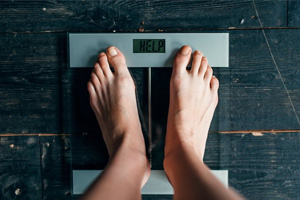Is there a perfect time for workouts in a day for better health?
Discover the science behind optimal workout timing and how it can enhance your overall health and fitness journey Whether it s morning, afternoon, or evening, find out when to exercise for the best results
Is there a perfect time for workouts in a day for better health? Many individuals wonder if the timing of their exercise routines can significantly impact their overall well-being. While there may not be a universally ideal time for everyone, understanding how various times of day affect your body can help you make the most of your fitness regimen. In this article, we explore the advantages of morning, afternoon, and evening workouts, considering individual goals and lifestyle preferences.

The Best Time for Workouts and Their Impact on Health
Morning Workouts
Early morning workouts have several advantages:
- Boosted Metabolism: Exercising in the morning can kickstart your metabolism and help you burn more calories throughout the day.
- Enhanced Fat Burning: Fasting overnight, your body may tap into fat stores for energy during morning workouts.
- Consistency: Establishing a morning exercise routine can make it easier to stay consistent with your workouts.
- Improved Mood: Physical activity triggers the release of endorphins, promoting a positive mood and reducing stress.
- Better Focus and Productivity: Morning exercise can enhance mental focus and productivity throughout the day.
However, morning workouts might not be suitable for everyone. If you're not a morning person or have trouble waking up early, you may find it challenging to maintain a consistent morning exercise routine. It's essential to consider your daily schedule, energy levels, and personal preferences when deciding on the best time for your workouts.
Afternoon Workouts
Exercising in the afternoon offers unique benefits:
- Optimal Body Temperature: In the afternoon, your body temperature and muscle flexibility tend to be at their peak, reducing the risk of injury.
- Increased Strength and Endurance: Your body's strength and endurance levels may be higher in the afternoon, allowing for more intense workouts.
- Stress Relief: Afternoon exercise can help relieve stress and improve mood, making it an excellent choice for people with busy workdays.
- Social Opportunities: Many group fitness classes and gym sessions are scheduled in the afternoon, offering a chance for social interaction.
On the other hand, afternoon workouts might interfere with work or other daily responsibilities. You should consider your schedule and energy levels to determine if afternoon exercise aligns with your lifestyle.
Evening Workouts
Exercising in the evening has its set of advantages:
- Increased Muscle Performance: Muscle performance can peak in the late afternoon and early evening, allowing for efficient workouts.
- Stress Reduction: Evening workouts can be an effective way to unwind and relieve stress after a long day.
- Flexible Schedule: Evening workouts are suitable for those with busy mornings or unpredictable daily routines.
- Improved Sleep: Contrary to the belief that evening exercise disrupts sleep, some people find it enhances their sleep quality.
However, late-night workouts may energize some individuals too much, making it difficult to wind down for sleep. It's essential to listen to your body's response and determine if evening exercise supports your overall well-being.
Factors to Consider When Choosing the Right Time
Personal Preferences and Routines
Your personal preferences and daily routines play a significant role in determining the right workout time:
- Energy Levels: Consider when you have the most energy. If you're a morning person, early workouts might suit you best. Night owls may prefer evening exercise.
- Consistency: Choose a time that aligns with your daily schedule. Consistency is key to maintaining a workout routine.
- Social Factors: If you enjoy exercising with friends or participating in group classes, select a time when these options are available and convenient.
- Mood and Stress: Some people find that working out at specific times improves their mood or helps them manage stress better.
Workout Goals and Objectives
Your fitness goals should influence your choice of workout time:
- Weight Loss: Morning workouts may be beneficial for weight loss, as they can boost metabolism and reduce appetite throughout the day.
- Strength Building: Afternoon or evening workouts allow you to take advantage of higher strength levels and muscle performance.
- Stress Reduction: Evening workouts can help alleviate stress and promote relaxation, making them suitable for stress management.
- Performance Enhancement: If you're training for a specific event or competition, choose the time that aligns with your competition schedule.
Circadian Rhythms and Biological Factors
Understanding your body's natural rhythms and biological factors can aid in selecting the optimal workout time:
- Circadian Rhythms: Consider your circadian rhythms. For most people, body temperature and muscle flexibility peak in the late afternoon, which can be an ideal time for exercise.
- Sleep Quality: If you exercise too close to bedtime and it affects your sleep, consider shifting your workout earlier in the day.
- Hormonal Influences: Hormone levels fluctuate throughout the day, impacting factors like energy, muscle performance, and motivation.
- Adaptation: It may take some trial and error to determine when your body adapts best to physical activity.
Ultimately, the best time to work out is the time that aligns with your personal preferences, daily routines, and fitness objectives, while also considering your body's natural rhythms and responses.
Benefits of Morning Workouts
Enhanced Metabolism and Fat Loss
Morning workouts are often associated with enhanced metabolism and fat loss:
- Metabolic Boost: Exercising in the morning can jumpstart your metabolism, helping your body burn more calories throughout the day.
- Fat Utilization: Morning workouts may encourage your body to rely on stored fat for energy, aiding in weight and fat loss.
- Appetite Control: Early exercise can help regulate appetite and food cravings, potentially promoting healthier eating habits.
- Consistency: Morning workouts tend to be more consistent since they are less likely to be disrupted by unexpected events or work-related issues.
Improved Consistency and Discipline
Choosing a consistent workout time can have a significant impact on your exercise routine:
- Routine Formation: Consistency in workout timing helps establish a routine, making it a habit that requires less conscious effort.
- Discipline and Commitment: When you stick to a set schedule, you develop discipline and commitment, which are essential for long-term fitness goals.
- Accountability: Having a dedicated workout time creates a sense of accountability to yourself and your fitness objectives.
Boosted Mood and Mental Focus
The psychological benefits of exercise are significant and can vary based on the chosen workout time:
- Mood Elevation: Morning workouts can boost mood by releasing endorphins and providing a positive start to your day.
- Stress Reduction: Evening workouts are effective for stress reduction, helping you unwind and relax after a busy day.
- Mental Clarity: Exercise enhances mental focus and cognitive function, regardless of the time of day.
- Energy Levels: Consistent exercise can provide sustained energy throughout the day, irrespective of the chosen time.
It's important to consider your fitness goals, personal preferences, and daily routine when determining the best time for your workouts. Whether you choose morning, afternoon, or evening, the key is to prioritize consistency and commitment to achieve better health and fitness.
Advantages of Afternoon Workouts
Optimal Body Temperature and Performance
Workout performance is influenced by body temperature, which varies throughout the day:
- Morning Performance: In the morning, your body temperature is generally lower. While this may mean a slightly slower warm-up, it can lead to improved endurance and performance during the main workout as your body gradually warms up.
- Afternoon Performance: In the afternoon, your body temperature is at its peak, making this time ideal for strength training, intense workouts, and achieving personal bests.
- Evening Performance: During the evening, your muscles and joints are well-lubricated, reducing the risk of injury and enhancing flexibility. However, your body temperature starts to decline, which may affect high-intensity exercises.
Injury Prevention and Reduced Risk
Exercise timing can influence your risk of injuries:
- Morning: The lower body temperature in the morning might increase the risk of muscle strains. However, the absence of intense heat can reduce the risk of overheating.
- Afternoon: Muscles and joints are more adaptable in the afternoon, reducing the risk of sprains and injuries. It's also easier to maintain proper form during strength training, further minimizing injury risk.
- Evening: Lower body temperature in the evening might increase muscle stiffness, potentially leading to overuse injuries if proper warm-up and cooldown routines are neglected.
Effective Stress Management
Exercise can be an effective stress management tool, and the timing of your workouts can impact this aspect of your well-being:
- Morning Stress Relief: Morning workouts can help you start the day with reduced stress and anxiety, setting a positive tone for the hours ahead.
- Afternoon Stress Reduction: Afternoon workouts are beneficial for stress relief, especially if you've encountered stressors earlier in the day.
- Evening Relaxation: Evening exercise can help you unwind and release stress, preparing your body for relaxation and quality sleep.
While these factors can influence workout timing, it's essential to choose a schedule that aligns with your personal preferences and daily routine. The most important aspect of regular exercise is consistency, regardless of the time you choose.
Benefits of Evening Workouts
Increased Muscle Strength and Endurance
Choosing the right time for your workouts can have a significant impact on your muscle strength and endurance:
- Morning Workouts: Exercising in the morning can help you build muscle strength and endurance by enhancing your body's ability to utilize stored carbohydrates. It can set a positive tone for the day, leading to increased energy levels.
- Afternoon Workouts: In the afternoon, your muscle strength is at its peak, making it an ideal time for weightlifting and resistance training to promote muscle growth and endurance.
- Evening Workouts: Evening workouts can help you improve muscle endurance by challenging your muscles after a day of activities. While it may not lead to significant muscle growth, it can enhance overall endurance and stamina.
Better Sleep and Recovery
The timing of exercise can affect your sleep quality and post-workout recovery:
- Morning Workouts: Morning exercise can promote better sleep by aligning your body's natural circadian rhythm. It allows you to unwind and relax in the evening, leading to improved sleep quality.
- Afternoon Workouts: Afternoon workouts can be beneficial for those who have time to recover before the evening. It may lead to improved sleep, as your body has adequate time to cool down.
- Evening Workouts: Evening exercise can make it challenging to fall asleep for some individuals due to elevated heart rate and body temperature. However, it doesn't affect everyone the same way, and some people experience no sleep disruptions.
Convenience for Busy Schedules
Choosing the best time for workouts also depends on your daily schedule and convenience:
- Morning Convenience: Morning workouts are suitable for individuals who prefer to exercise before their daily commitments. It ensures that exercise is completed without interruptions.
- Afternoon Convenience: Afternoon workouts can be ideal if your schedule allows for a break between tasks. It's a great way to re-energize and break up the workday.
- Evening Convenience: Evening workouts are convenient for those with busy mornings or family commitments. It can serve as a way to de-stress after work.
Ultimately, the best time for exercise depends on your personal goals, daily routine, and individual preferences. Consistency and enjoyment are key factors in maintaining a regular exercise routine.
FAQs: Timing Your Workouts for Better Health
Q1: What is the best time to exercise for weight loss?
A1: The best time for exercise to support weight loss is often in the morning. Morning workouts help kickstart your metabolism and burn calories throughout the day.
Q2: Are there any specific health benefits of afternoon workouts?
A2: Afternoon workouts are excellent for enhancing muscle strength and endurance. Your body's core temperature is higher, reducing the risk of injury during resistance training.
Q3: Can evening workouts affect my sleep quality?
A3: Evening workouts can interfere with sleep quality for some individuals. It's important to allow sufficient time to wind down before bedtime for better sleep.
Q4: How do I choose the right workout time based on my goals?
A4: To select the ideal workout time, consider your daily routine and preferences. Morning workouts suit early birds, while afternoons provide a strength-training advantage.
Q5: Can consistent exercise at any time of the day yield health benefits?
A5: Absolutely! The most crucial factor is consistency. Regular exercise at any time can lead to improved physical and mental well-being.










